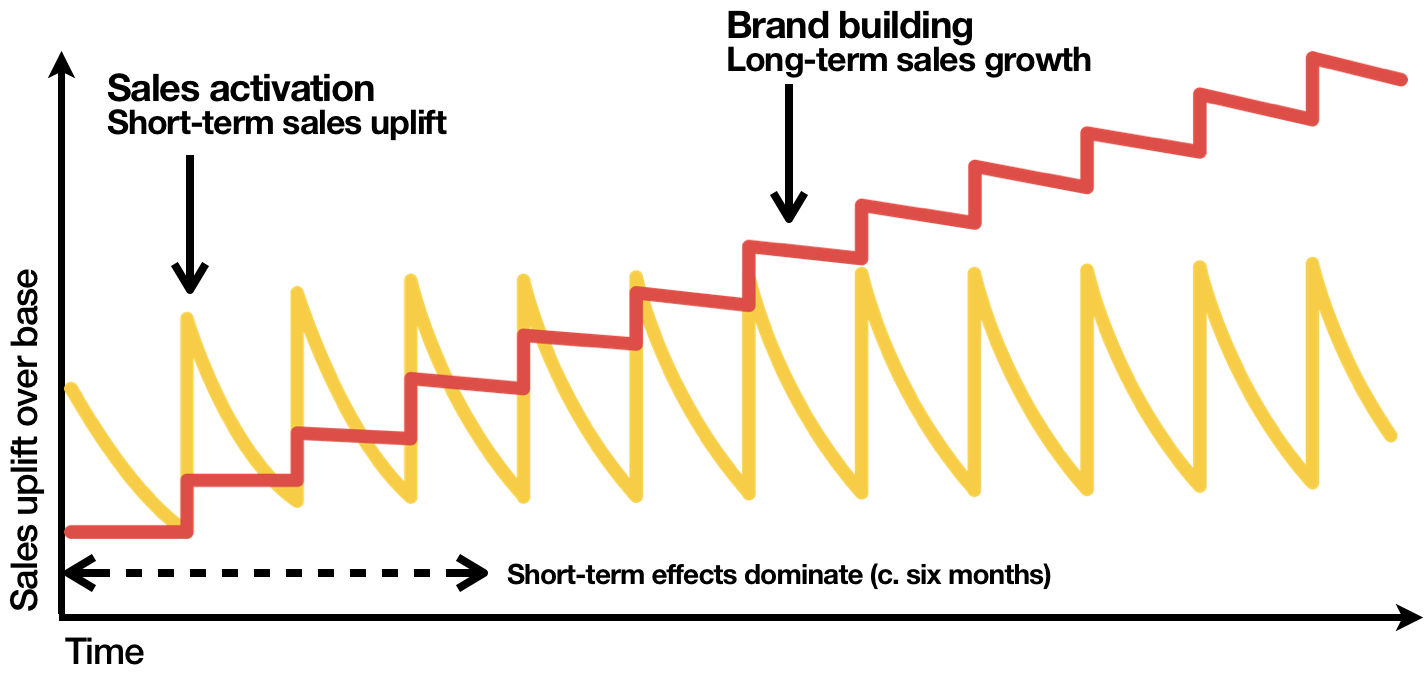The UK has now officially come out of recession. The economy grew by 0.6% in the first three months of the year – the first time the economy has grown since this time last year. Inflation has also fallen to the lowest level tor 2 years at 3.4% for February. However, this reduction in inflation simply means that prices are rising less quickly than before. The cost of groceries and mortgages are significantly higher than pre-recession, with Bank of England Base Rates at their highest level for 16 years. An IGD presentation recently described the fragility of shopper confidence, concluding that there’s a delay between small improvements in shopper confidence and changes in behaviour. The key take-out from this is that household budgets are still stretched for very many shoppers.

What we know about the effects of Advertising in an uncertain economic context
A significant body of evidence shows that investing in brands during a recession is an opportunity to accelerate ahead of the competition, grow market share and increase profit over the medium term. There are two main reasons why this might be the case:
- Simply maintaining your expenditure will increase your share of voice as competitors spend less. Some brands will fear the financial consequences of continuing to spend on advertising when returns are uncertain. Business will need to cut costs when dimes are hard but look at your supply chain first before you cut advertising.
- In a recession consumers look to trusted brands. Sustained advertising builds brand and in turn relationship and trust. When consumer confidence and spend return, trusted brands benefit. The IPA evaluate post-recession brands and found those that had an excessive share of voice of over 8% increase market share by 4.5%.
- Advertising awareness is like pushing a heavy object. It has momentum. If you stop pushing it is harder to get started than if you carried on. Spend on advertising has both short- and long-term effects. Advertisers who decided to pause their spend in tough economic times will take time to build back this long-term effect once they start spending again.

Stopping advertising for your brand, or shifting to solely activation-focused activity, undermines the potential for long term growth and risks undermining the perceived value of your brand through sustained price-promotion. However, it also misses an opportunity to build emotional connection with your potential shoppers at a time when they need it most.
Online Marketing In turbulent times
Right now in the UK shoppers are making more decisions on price and making more price comparisons. Amazon will match lowest prices across e-commerce and bricks and mortar retail. However, these have risen as we’ve gone through this inflationary period.

In terms of online retail media, search advertising tends to deliver shorter-term activation results, whereas display delivers more long term brand-building results. Both are important if you want to maintain sales through these tougher times and emerge more strongly from them.
In the short term, many brands may be switching to more activation/search. On Amazon we have seen continued increases in cost per click likely driven by demand. It’s likely that the reverse is true for display although costs are slightly more difficult to benchmark here. Now would be a good time to invest in display advertising (more cheaply/with greater share of voice) and enjoy the long term effects of a stronger recovery when we return to economic growth.
Brand trust is more important than ever when shoppers literally can’t afford to make a mistake. Within the Amazon and elsewhere in the online ecosystem, it’s easy to find brands that are trusted via reviews. It’s a good time to focus your investment on your best rated and reviewed products.
Tactics for maximising effectiveness on Amazon In tricky times
- At a time when some shoppers literally can’t afford to make a mistake, focus your ad spend on products with the highest ratings and review counts. These will provide the necessary reassurance that the products will meet the needs of the shopper.
- Broaden reach. Choose audiences that will reach as many shoppers as possible. De-duplicate audiences as much as possible for display (brand-building) advertising. Amazon’s DSP can achieve this result very effectively with carefully constructed campaigns.
- Review your Excess Share of Voice and Excess Share of Search. There are limitations on data availability for some marketplaces, but where the possible, this calculation will enable you to see whether your spend is higher than your share of market and and so is likely to generate growth. Looking at share of search provides an even more solid prediction, as this is based on consumer action.